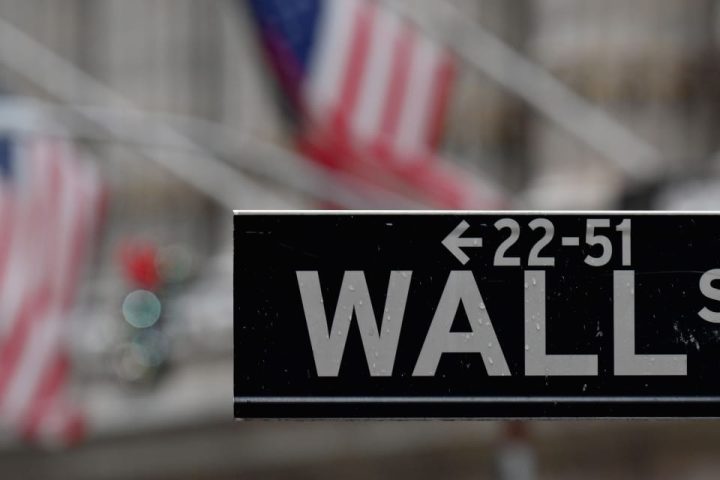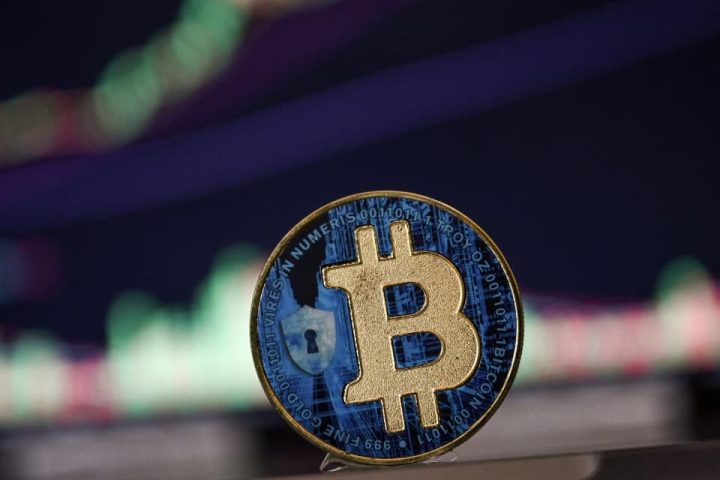Investing.com — U.S. stock futures were mixed heading into the final trading day of the week, with investors preparing for the release of quarterly results from large Wall Street banks and parsing through recent inflation data. Elevated interest rates are expected to factor heavily into returns from lenders JPMorgan (NYSE:), Wells Fargo (NYSE:) and Citigroup (NYSE:) on Friday, as a fresh corporate earnings season gets underway. Elsewhere, the U.K.’s competition regulator approves Microsoft’s (NASDAQ:) restructured acquisition of Activision Blizzard (NASDAQ:), clearing the way for the closure of the largest deal in the history of the gaming industry.
1. Futures mixed
Stock futures in New York were mixed on Friday, as traders geared up for results from major banks and digested stronger-than-anticipated U.S. consumer price data.
By 05:08 ET (09:08 GMT), the contract had added 38 points or 0.1%, were mostly unchanged, and edged down by 21 points or 0.1%.
The main indices closed lower in the prior session, weighed down by a jump in U.S. Treasury yields in the wake of data showing higher-than-expected annual headline inflation in the world’s largest economy in September. The reading fueled projections that the Federal Reserve may need to raise interest rates yet again before the end of the year to cool stubbornly elevated price gains.
Ongoing violence in the Middle East also contributed to a cautious mood in markets.
The 30-stock slipped by 0.5%, while the benchmark and the tech-heavy both fell by 0.6%.
2. Bank earnings ahead
Attention now turns to returns from key Wall Street lenders on Friday, an event that typically marks the beginning of the quarterly corporate earnings season.
JPMorgan, the country’s biggest bank, as well as peers Wells Fargo and Citigroup, are all set to report.
A recent surge in interest rates will likely be in focus. Analysts have flagged concerns that the tighter financial conditions may have dented lending margins and contributed to a slowdown in loan demand, placing pressure on balance sheets.
Meanwhile, firms with large investment banking operations, such as Goldman Sachs, are facing an era of relative weakness in dealmaking. According to Dealogic data cited by Reuters, global investment banking fees have dropped by around 17% in the third quarter compared to the same timeframe last year.
A weeks-long spike in U.S. Treasury yields to 16-year highs also threatens to take its toll. Prices typically fall as yields rise, meaning that bond portfolios owned by these banks shrink in value. This could lead to unrealized losses should these companies choose to sell the bonds — a trend that played a part in the regional banking crisis in March.
Throughout 2023, the path of borrowing costs has impacted lenders across the industry, with the KBW index of bank stocks slipping by almost 23% so far this year.
3. Chinese inflation lower than projected in September
Consumer prices in China were unexpectedly flat in September, exacerbating worries over persistent deflationary pressures in the world’s second-largest economy.
The country’s came in at 0.0% last month on an annual basis, according to National Bureau of Statistics data, cooling from 0.1% in August. Economists had estimated a slight acceleration in the crucial inflation indicator to 0.2%.
September also dropped by 2.5% from a year ago, a faster rate of decline than market projections for a 2.4% fall. However, it was the smallest dip in seven months.
In a note, analysts at ING said that, despite emerging signs of stabilizing activity, the numbers point to lingering challenges in China’s sputtering post-COVID recovery.
4. Oil gains amid U.S. sanctions
Crude prices rose Friday following a move by the U.S. to impose the first sanctions on owners of tankers carrying Russian oil priced above the G7’s cap of $60 a barrel, potentially weighing on an already tight global supply.
The news overshadowed oil stockpiles jumping by more than 10 million barrels last week — the most in eight months — while output from the world’s largest producer of the commodity hit a new record high of 13.2 million barrels per day, according to Thursday’s official data.
By 05:10 ET, the U.S. crude futures traded 3.0% higher at $85.41 a barrel and the contract climbed 2.9% to $88.46 a barrel.
Brent is set for a weekly gain of 3.8%, while WTI is on pace to add 2.4%. Both contracts surged on Monday following Hamas’ surprise attack on Israel.
5. U.K. competition regulator approves Microsoft-Activision megadeal
Britain’s antitrust watchdog on Friday gave the green light to Microsoft’s $69 billion purchase of “Call of Duty” maker Activision Blizzard, clearing the way for an imminent closure of the gaming industry’s largest-ever deal following almost two years of legal reviews.
The Competition and Markets Authority (CMA) approved a revised tie-up that will see Activision sell its cloud streaming rights to French video game group Ubisoft Entertainment. This effectively blocks Microsoft from making Activision’s lucrative titles exclusive on its Xbox Cloud Gaming service, which the CMA had said could give the group dominance in a rapidly growing market.
Microsoft is now on track to close the deal by Oct. 18. It had previously extended the deadline to finalize the acquisition by three months in a bid to restructure the agreement to assuage the CMA’s concerns.
Read the full article here







